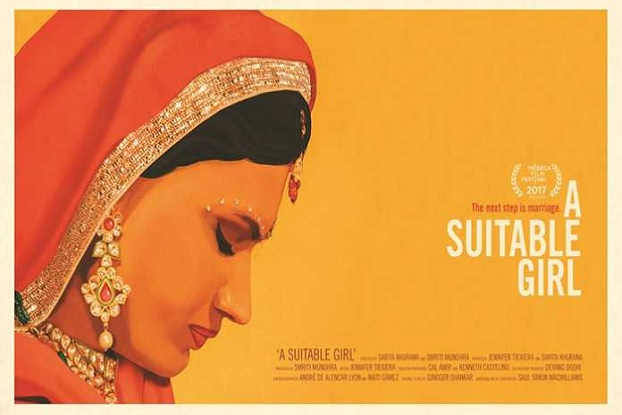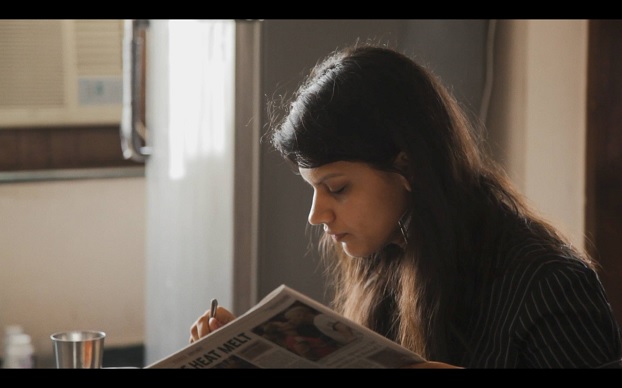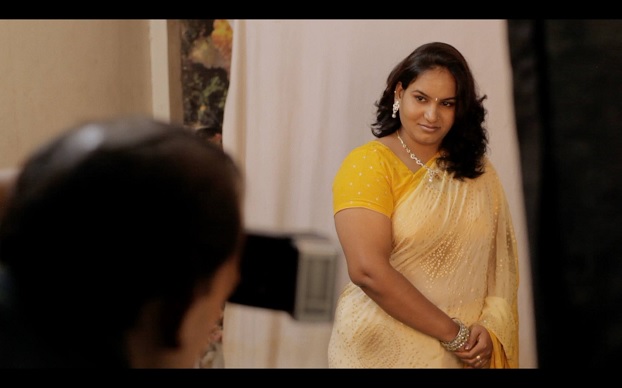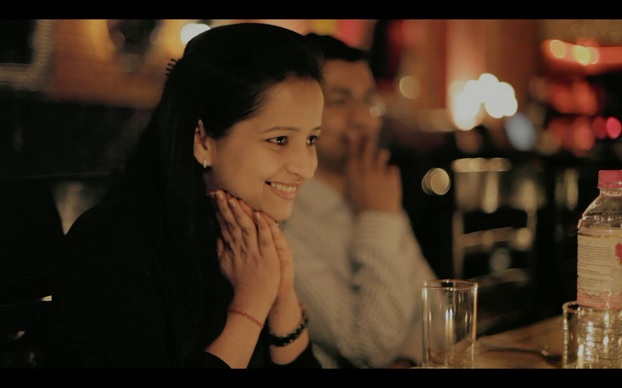
Traditional culture and contemporary sensibilities collide to paint a picture of the complex experiences of three modern Indian women in the documentary film A Suitable Girl, screening this weekend at the 3rd i Film Festival in Palo Alto. Directors Sarita Khurana and Smriti Mundhra profiled the journeys of Ritu, Diti and Amrita; three educated, urban middle class women navigating both personal and familial expectations surrounding marriage.
While the lives of contemporary Indian women are as diverse as the subcontinent is vast, there remain some communities with seemingly old-fashioned holdouts when it comes to cultural values. Arranged marriage is still popular enough, in fact, that Ritu’s mother Seema runs a thriving Mumbai-based matchmaking service, and Dipti can attend a popular speed-dating event with her parents in the same city.
What’s most fascinating about this film is seeing the starkly different ways Ritu and Dipti leverage their access to matchmakers for different results. When we meet Ritu, she is vehemently opposed to getting married. At 25, she wants to focus on building her career in finance, but her parents are convinced that she won’t find a husband before 30 if she doesn’t start looking immediately.

Later, Ritu appears to sag under the consistent pressure from her parents, and acquiesces to them finding her a match, but under no uncertain conditions. He must be intelligent above all else and live in a city where she too can find a good job. Ritu’s parents find her an equal in more ways than one in Aditya. Aditya is just as skeptical about marriage as Ritu and even goes so far as to share in an interview that he wishes he were “born a European” so that he could excuse himself from this specifically Indian cultural norm. In the end, Aditya and Ritu are happily wed and move to Dubai, where they both work at the same financial company together.
When we join Dipti’s story, she is traversing the emotional ups and downs of searching, hoping, acceptance and rejection that come with almost anyone’s experiences of dating, regardless of how heavily or remotely involved one’s family is in the process. Trying in-person meetings orchestrated by matchmakers, responding to newspaper ads, and setting up several online dating profiles become a consuming task for Dipti. She’s a sweet and kind 30-year old primary school teacher from a loving, supportive family, but the matchmakers keep telling her she can’t find a husband because she’s not fair-skinned and not thin enough to compete with other eligible bachelorettes.

Dipti dreams of finding a “life partner” with the “same [agreeable] personality as me…straightforward,” and simply kind. She’s pulled out of despondency when she begins chatting with Karthik through a dating site. She quickly gets the impression that Karthik is just the man she’s had in mind all along. Over the months of their courtship, Karthik makes it clear that he likes Dipti and eventually proposes that they marry. After witnessing the uphill battle Dipti had to endure just to find happiness, it is heartwarming to hear Karthik say “don’t worry, I’ll take care of her” to Dipti’s weeping father before the newlyweds embark upon their new life together.
But marriage doesn’t work out exactly how every woman in the film imagined. For one woman, it represents the closing of one chapter and the opening of a completely new one. We’re introduced to Amrita in Delhi where she is about to marry Keshav. The two met in high school and, while Amrita is excited that Keshav admires her intelligence (she earned an MBA and he’d like her to help him run his family’s manufacturing business after the wedding), she admits that she’s somewhat nervous about giving up her freedom as a single girl who loves socializing with her friends after work to come straight home and care for her husband and in-laws. Ultimately, Amrita does give up her career to run the household, but a pre-credits epilogue tells us that Amrita and Keshav have a beautiful daughter now and Amrita looks happy holding her child in the photo on display.

Modern Indian marriage can be as nuanced or as plain as an Indian couple makes it to be for themselves. This is just one of the messages one can draw from A Suitable Girl. The choice to mold a relationship within the confines of specific traditions or cultural norms is at once a completely universal and highly specific experience. The stories of all three women in this film demonstrate that inherent complexity and point to the fact that while a woman’s choices are often dictated by society, family and any number of other external factors, only she can decide where she places her love.
* * *
Visit thirdi.org for details about this weekend’s screenings and more information on 3rd i’s SF International South Asian Film Festival.
Anjali Misra is a Chicago-based nonprofit professional and freelance writer of media reviews, cultural criticism and short fiction work. She earned her MA in Gender & Women’s Studies from the University of Wisconsin-Madison, where she spent nine years as a student and community organizer, focusing on inter-ethnic solidarity, interracial coalition building, and gender justice. She is an avid sci-fi media fan, and Ms. Marvel/Kamala Khan is her patronus.












